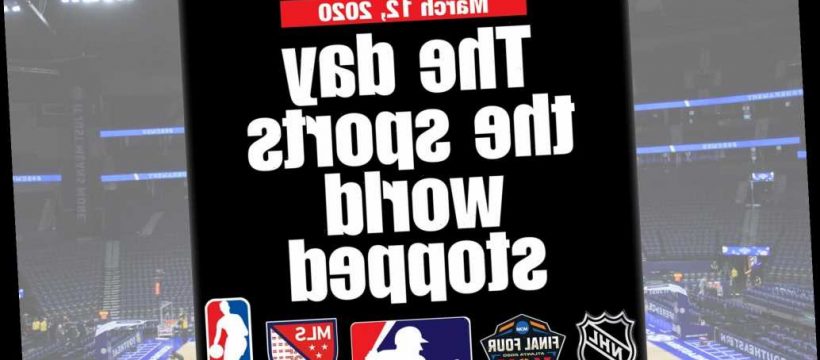Look, we are a reasonable people, a rational nation. Despite occasional appearances to the contrary, we know sport isn’t life and death, that it is only vaguely real life at all. We may care too much at times. We may yell too much at times. Sometimes, inexplicably, we paint our faces outlandish team colors.
Sometimes we lose sleep over a buzzer-beater, a walk-off, a shootout.
Mostly, we know. We understand. When the towers fell on Sept. 11, 2001, we knew enough that sports would have to go away for a while (even if Michael Strahan and Kevin Mawae had to stand up on behalf of New York and remind the rest of the NFL first, both men’s finest hours in Hall of Fame careers).
Pete Rozelle spent the last 33 years of his life knowing, and understanding, how profoundly he had erred in allowing the NFL to play a full slate of games just two days after John F. Kennedy’s assassination on Nov. 22, 1963. Rozelle, wanting to honor the late president, cited football as “his game” in explaining that decision. Forever, he had to answer for that.
“Some things,” he said in 1988, “are simply beyond the games.”
This, in the end, was beyond the game — this virus, COVID-19, which is suddenly a part of our every waking moment, which insinuates itself in everything we do. It is still mysterious enough that many of us aren’t quite certain just how serious it must be taken, or how much peril we are really in. But by now, we are quite certain of one thing:
It merits our attention, undivided, unfiltered. It takes precedence over the routines of our lives now. The St. Patrick’s Day parade. Broadway shows. College semesters. Concerts.
And sports.
Thursday — March 12, 2020 — was the day sports died, or at least the day they went into temporary hibernation. It was a day that had been brewing and percolating for some time, the drip-drip-drip of a nation trying to assemble a responsible course of action. First, media contact was limited. Then, fans were banned. Some collegiate leagues canceled seasons.
But Thursday was when the lights went off for good, when the men and women who control sports in the United States finally understood it was time to reach for the red phone, the nuclear option.
In late morning, in arenas in Manhattan and Brooklyn, Kansas City and Indianapolis and Atlantic City and Greensboro, N.C., basketball players had begun warming up for games that would be played in front of TV cameras and friends and family only. It was the last gasp of a nation trying to have it both ways, grasping for the normalcy sports carries while still illustrating concern for the public good. But it always felt like a half measure.
And in the end, it was. One by one the athletes were called off the courts, the lights were turned off, the doors were closed. At Madison Square Garden, the Big East delivered sports fans one last regrettable spasm of activity before pulling the plug on a St. John’s-Creighton game at halftime. And that was the just the first domino.
Soon enough, both Duke and Kansas would announce they wouldn’t participate in the NCAA Tournament, which finally spurred the NCAA to embrace the inevitable, canceling its signature event. In Jacksonville, Fla., it was announced The Players Championship would proceed, but that there would be no galleries for rounds two through four starting Friday. Major League Soccer suspended its season. So did the NHL. Neither was a surprise.
Nor was what became official, at last, just past 3 o’clock: baseball’s spring training would be shut down. The start of the season would be delayed until at least April 8 — though it was a bit unsettling to hear umpire Angel Hernandez, passing writers covering a Yankees-Nationals game in West Palm Beach, saying, “See you guys in June.”
Hernandez may have been joking. Or he may be right. Or he may be underestimating. We have no way of knowing. In the time of COVID-19, we are making our way a few minutes at a time, flailing in untamed sea, because there is no other choice.
Here’s something, though:
Just because we understand sport’s proper place in our world right now doesn’t mean we aren’t allowed to feel its loss. Losing baseball season, for baseball fans, is like losing a lung. There is much regret lying in the detritus of the NCAA Tournament. Rutgers fans have waited since 1991 for an invite. Hofstra fans have gone from sublime high to crashing low in the space of two days.
“My dreams are shattered,” a friend texted the other day. He’s a Dayton alum. Dayton may never again have a team with this legit a chance to play in a Final Four. If you’ve ever cared, truly cared, about a sports team, you certainly understand what he is feeling.
But you also understand why this is necessary. We are a reasonable people. We are a rational nation. Our games go away now, and maybe for some time because they must, because it’s the right thing, because COVID-19 is the only opponent that matters right now. Doesn’t make it the easy thing. We’ll miss the games, and it’s OK to miss them. I miss them already.
Source: Read Full Article
